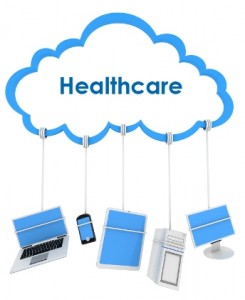 Data privacy and security are two of the main reasons why healthcare takes the slow route towards the adoption of new technologies. Experts believe that by 2017, the healthcare cloud computing market will be worth $5.4 billion. With cloud computing, different doctors can access a patient’s health records even if they’re miles apart. These physicians need not talk over the phone to request for a transfer of the health records. They will just have to access them in the clouds.
Data privacy and security are two of the main reasons why healthcare takes the slow route towards the adoption of new technologies. Experts believe that by 2017, the healthcare cloud computing market will be worth $5.4 billion. With cloud computing, different doctors can access a patient’s health records even if they’re miles apart. These physicians need not talk over the phone to request for a transfer of the health records. They will just have to access them in the clouds.
With the popularity of cloud computing, the healthcare industry may be in for a disruptive innovation because a lot of doctors and even hospitals are already moving towards the clouds. When there is already widespread use of cloud computing in the industry, the public can expect cost and time savings as there won’t be a need to take duplicate medical tests and images can be accessed instantaneously, provided there is robust internet connection. Hospitals and clinics need not invest on hardware and maintenance because these concerns are already taken care of by the cloud computing providers.
In 2011, MarketsandMarkets reported that only 4% of the whole industry took advantage of cloud computing offerings. Today, cloud providers are also offering software and order entries, and health records for pharmacy and imaging uses. Aside from these basic services, there are also non clinical services being offered such as claims management, cycle management, and billing for hospitals. Hybrid and private clouds are also being offered to deal with compliance and security concerns. Basically, healthcare data requires long term preservation, data reversibility, access traceability, authorized users, confidentiality, and security.